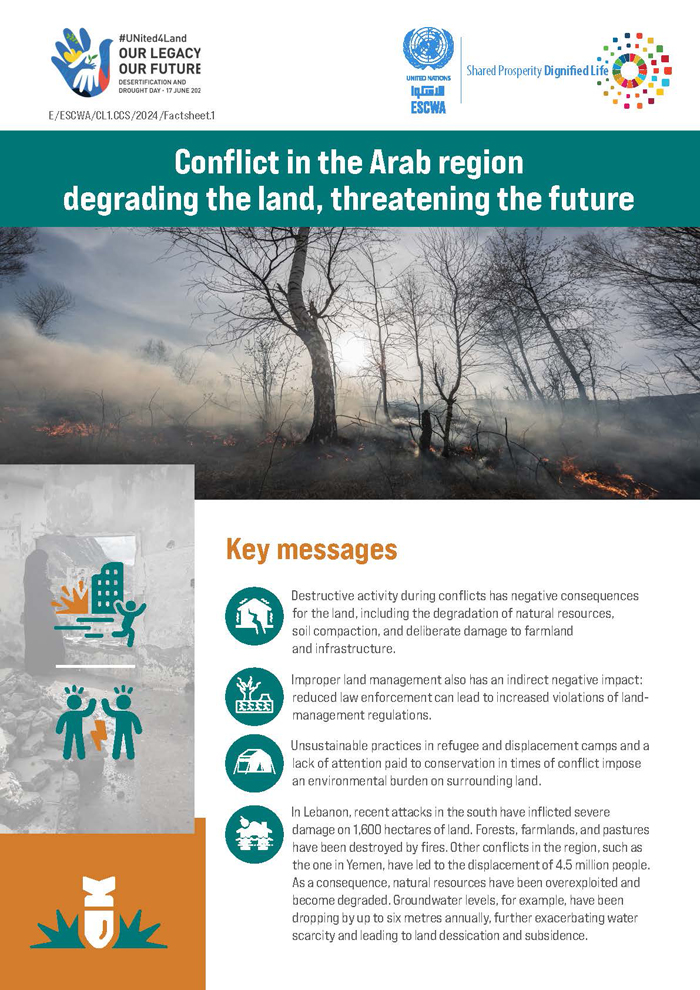
Background
Five decades have already passed since Israel occupied Palestinian territory. Israeli policies and practices to extend and maintain control and domination have had a rising detrimental, multilayered and inter-generational impact on the Palestinian society, economy and environment. As a result, the State of Palestine faces social and economic issues such as humanitarian crises, de-development, destruction of economy and increasing dependency on external humanitarian and development aid.
ESCWA is mandated to support Palestinians and their institutions to attain inalienable rights, including the right to self-determination and the right to development. It has monitored and reported on Israeli policies and practices and their economic and social repercussions on the Palestinian population. ESCWA has also sought to enhance Palestinian capacities to mitigate and overcome these repercussions, seeking to explore new avenues through which it can support Palestinian efforts to attain their inalienable rights.
Our approach
ESCWA’s approach is two-tiered:
The first tier is assisting Palestinians in their efforts to exercise their inalienable rights. In this respect, ESCWA produces, compiles and disseminates information to various actors in different States and organizes events and assists Palestinians to raise awareness of their plight and mobilize support.
The second tier is mitigating the social and economic impact of the Israeli occupation. ESCWA assists Palestinian institutions and other stakeholders to develop tools and capacities based on a deeper understanding of the Palestinian context. This enhances their abilities to contextualize development planning that aims to circumvent impediments created by the occupation.
Our partners
Our partners include the 22 United Nations agencies, funds and programmes that comprise the United Nations Country Team in Palestine; the League of Arab States; the Arab Fund for Economic and Social Development; the Government of the State of Palestine (Office of the Prime Minister, Palestinian Central Bureau of Statistics and Permanent Observer Mission to the United Nations); Birzeit University; the Palestine Economic Policy Research Institute-MAS; the Palestinian Policy Network (Al-Shabaka); Pal-Think For Strategic Studies; the Institute for Palestine Studies; the Welfare Association; academic institutions and civil society actors; United Nations Division for Palestinian Rights (UNISPAL) and the Department for Political and Peacebuilding Affairs' (DPPA)
Our activities
ESCWA periodically reports to its member States about the situation in the occupied Palestinian territory and seeks to address Palestinian needs and document Israeli policies and practices, particularly those that violate international law.
ESCWA also produces analyses about Israeli policies and practices, and their social and economic impact on the living conditions of Palestinians and on the economic and social sectors. Additionally, ESCWA uses the normative work it produces to develop awareness-raising materials and capacity-building tools.
ESCWA seeks to mobilize support to Palestinians through events such as the annual observance of the International Day of Solidarity with the Palestinian people (29 November).







